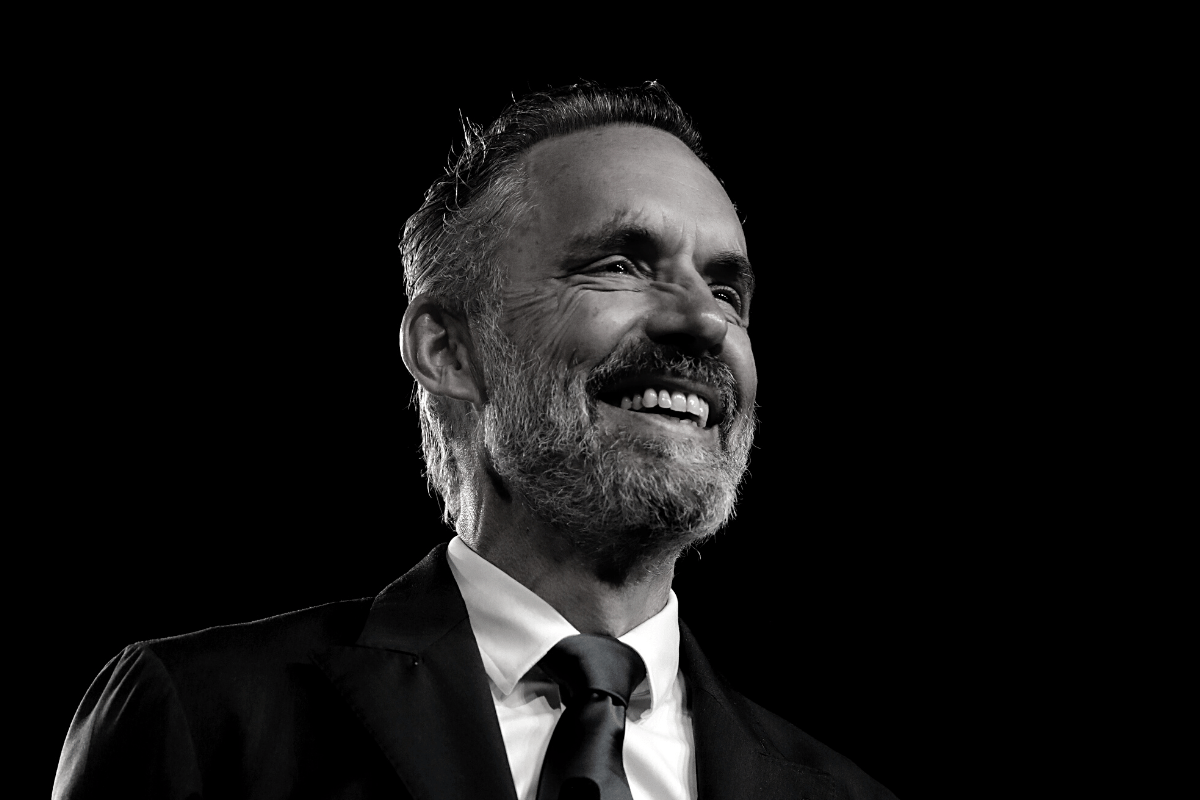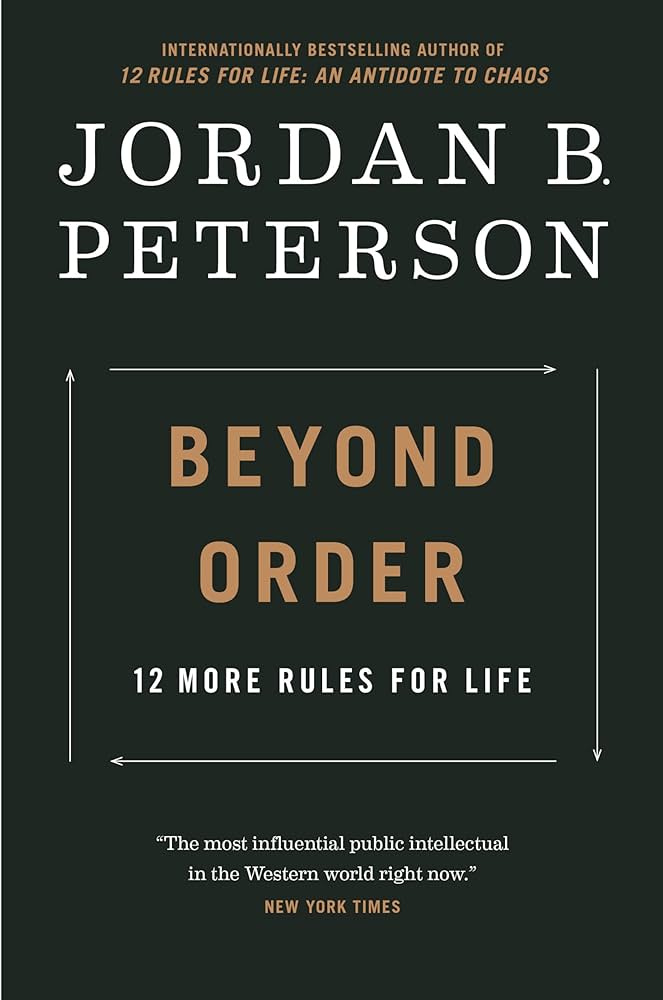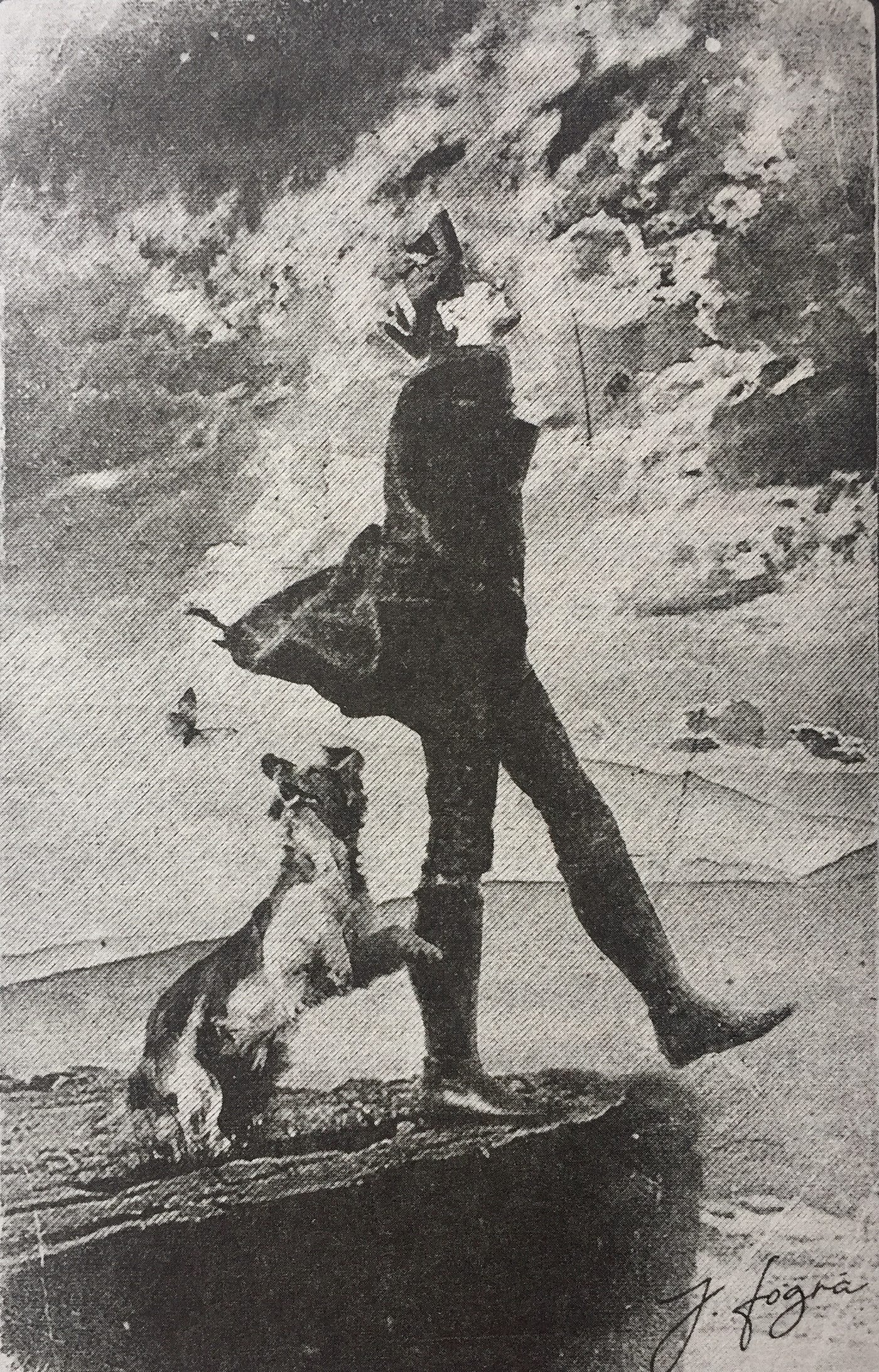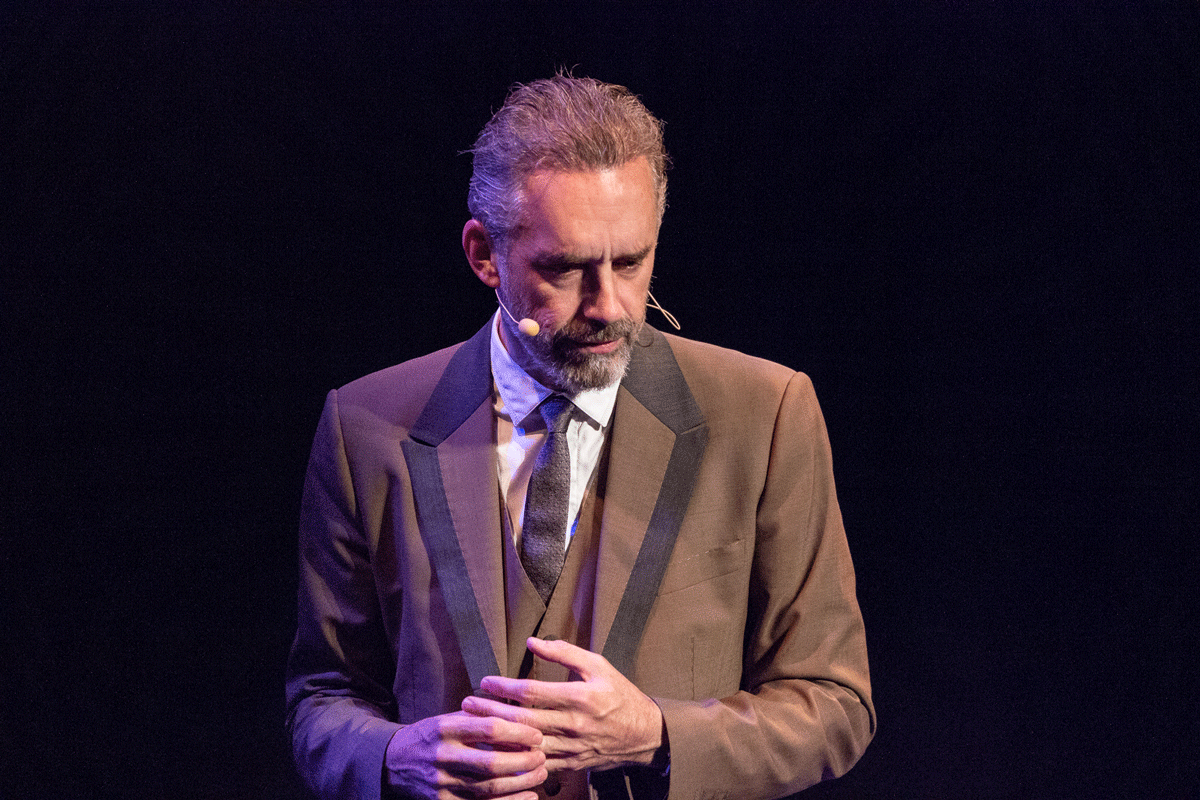Top Stories
Beyond Order: 12 More Rules For Life—A Review
The rule “Do Not Hide Unwanted Things in the Fog” urges us not to ignore negative emotions such as anxiety, pain, and fear.

A review of Beyond Order: 12 More Rule for Life by Jordan B. Peterson. Penguin Books, 402 pages. (March 2021)

“Any sensible person would be taken aback by all this,” writes Jordan Peterson in Beyond Order: 12 More Rules for Life. He is trying to make sense of the astounding impact of his previous book 12 Rules for Life: An Antidote to Chaos. Why had the book’s message resonated so profoundly with so many? And what is the significance of its stratospheric success? What is to be learnt from his videos clocking tens of millions of views? And what motivated thousands to attend his sold-out world lecture tour? In one town after another, they applauded when he appeared on stage and hung on his every word. After the show, they sought not an autograph, but a handshake with the man they credit with breathing meaning into their lives. “My work,” he reflects, “must be addressing something that is missing.”
Careful observation of his audiences revealed an answer—“the mention of one topic in particular,” he remarks, “brought every audience to a dead-quiet halt: responsibility.” That response is fascinating and it was not predictable, he notes. After all, “responsibility is not an easy sell.” Parents, society, schools, and volunteer organisations have all been striving to make kids responsible. “You might even consider the inculcation of responsibility the fundamental purpose of society,” he writes, “but something has gone wrong—we have committed an error.” Our error, explains Peterson, was telling young people to “demand what they are owed by society,” and that meaning will be provided by these demands. Instead, we should have told them to shoulder a noble burden, because that is where true meaning is found. Our error has made our children weak, vulnerable, passive in the pace of life, and consequently, susceptible to ideologies that draw upon resentment.
Peterson likens the immature young to Peter Pan—the magical little boy who refused to grow up and who lived in Neverland with Tinkerbell, “who has all the advantages of femininity, only she does not exist.” The problem is that time, as symbolised by the clock in the crocodile’s stomach, has whittled the magic of childhood away, and is continuing its unrelenting march. “Being the oldest person at the frat party” smacks of depression, explains Peterson, “it smacks of Neverland.” Our errors have helped create directionless men in their late 20s, 30s, and even 40s, whose lives are void of purpose or meaning.
Invite the evil queen into your child’s life
Beyond Order sends a stark warning to parents and society about how we raise our young. “We are not asking enough of the young people we are socializing,” he declares. We over-shield them, which causes serious, often irreversible damage. “If you shelter young people,” he explains, “you destroy them.” Do not let wilful blindness stop you from inviting Maleficent into your child’s life, even if it is only for short visits. For if you do not, your child will not have the “courage and ability to face the negative element” of real life. When the evil queen shows up in full force, the entirely unprepared young “are not going to want to live.”
Even worse, he writes, by depriving children of “their lives’ necessary adventures,” you weaken their characters and become the “destroying Agent” from which you were trying to protect them—the very agent that “devours their autonomous consciousness.” Every parent and educator should read the chapter entitled “Notice That Opportunity Lurks Where Responsibility Has Been Abdicated.” Here, Peterson expands on the pivotal importance of hardship to forging character and building resilience. Difficulties are necessary—in fact, there is a reciprocal relationship between the value of something and the difficulty of obtaining or accomplishing it.
We instinctively know that obstacles fortify us, which is why we willingly accept limitations every time we play a game like chess—the challenges make our journey more enjoyable and the joy of our achievement even more satisfying. What calls us into the world—to our destiny—is not convenience, concludes Peterson, “it is struggle and strife.” Just like Abraham, who left his father’s household, country, and people following God’s call, this is not a “call for happiness,” it is the complete “bloody catastrophe” of “famine, war, and domestic strife.”
Chaos and order

The 12 new rules are part of the (since removed) “42 Rules” Peterson originally published and popularised on the Q&A website Quora. Some are an extension of a previous rule—”Try to Make One Room in Your House as Beautiful as Possible,” for example, continues where the meme-inspiring “Clean Up Your Room” left off. And like his previous offering, Beyond Order is predicated on the idea that reality is comprised of chaos and order, and that both conservatism and liberalism are required to navigate it. While we depend on the safety provided by the institutions of the past, we must allow a “certain amount of arbitrary rule-ness” to maintain the process of regeneration. There is a narrow line between too much order and too much chaos, explains Peterson, and the trick is not to confuse creative regeneration with the thoughtless anarchism that threatens the prevailing system’s very existence. We must ensure that the pendulum does not swing too far in one direction.
The stirring tale of Jesus’s violation of the sabbath illustrates the “complex and paradoxical relationship between respect for the rules” and taking creative moral action that seems to oppose them. Through his actions and words, Jesus did not reject responsibility or “undeservedly claim the upper moral hand”—his respectful manner ruffled the traditionalists’ feathers but it also brought about change without causing destruction. Let this be a lesson to disrespectful rebels who fail to acknowledge that without the constructive builders and rule-keepers, creativity cannot even exist—“limitations, constraints, arbitrary boundaries, rules,” concludes Peterson, “not only ensure social harmony and psychological stability, they make the creativity that renews order possible.”
Connecting with the real world
As expected, Beyond Order draws on literature, poetry, mythology, classic fairy tales, Nietzsche, Freud, and the New and Old Testaments—the 10 commandments are listed in full. There are moving references to Peterson’s family members, including his wife, his father-in-law, and his little granddaughter. He observes his then-four-year-old son, Julian, repeatedly watching Pinocchio’s Monstro transform into a fire-breathing dragon: “He was clearly afraid of the climactic scene,” recalls Peterson, wondering why a child would voluntarily subject himself to such an experience. Dense, layered stories like Pinocchio captivate children’s minds, he explains, and Julian was using his faculties to process the relationships within it. Children hold very little knowledge due to lack of experience but they are also “very ancient creatures.”

This mind-boggling, wondrous thought illustrates Peterson’s powers of articulation, and helps explain why so many have had epiphanies while reading his work. His many eclectic references and eccentric observations awaken the mind, inviting the reader on a path of contemplation and discovery, at the end of which awaits deeper understanding of the human condition. Elsewhere in the book, he explains why Thomas the Tank Engine has a face and a smile; why Jung and Freud underestimated the role of community in the maintenance of personal mental health; why fathers are wrong to reassure their terrified children that no monsters lurk in the dark; why a young girl who “plays mother” is not duplicating observed gestures but discovering the essence of motherhood; why the benevolent queen is unable to control her evil counterpart; why the Bible contains the stories most fundamental to Western civilization; and on and on.
Beyond Order also includes memorable clinical studies from Peterson’s own practice. Regardless of one’s views on the merits of clinical psychology, the detailed accounts of his clients’ treatment, including Peterson’s inner thoughts and tribulations, offer illuminating insights into the field. Among these is the case of an isolated man who, through increased interaction with the outside world, emerged from his shell and began functioning within society. The case demonstrates Peterson’s conviction that “people depend on constant communication with others to keep their minds organised.” Freud and Jung, he adds, focused too much on the autonomous psyche and not enough on the role of community. Peterson now bases assessment of new clients on their past and present interaction with the social world.
Another case study features a depressed young girl who has spent the past six months in bed, with no motivation nor will to live. Through her account, Peterson sheds light on the arrogance and lack of humility behind so much youthful social activism. The conversation went well, he explains, until the patient expressed her concern for the damage we are causing to the environment. “There is nothing wrong in principle” with expressing concern about global issues, he writes, but if you are a “mid-twenty-year-old with nothing positive going on in your life and you are having great difficulty even getting out of bed … you need to get your priorities straight.” He concludes: “It has taken since time immemorial for us to organise ourselves biologically and socially, into the functional hierarchies that define our interactions with the natural and social world—profound gratitude for that gift is the only proper response.”
Humility, nobility, gratitude, and yes, romance

Beyond Order strikes a healthy balance between abstract philosophical argumentation and storytelling. As in 12 Rules for Life, Peterson employs the power of stories to convey a message and teach a valuable moral. The book’s narrative is often reminiscent of ancient Jewish wisdom. Peterson’s take on past errors inflicting pain upon today’s generation, for example, brings to mind “the fathers eat the unripe fruit but it is the children’s teeth that go dull,” while the harm we inflict on the young by denying them discipline recalls “whoever spares the rod hates his son, but he who loves him is diligent to discipline him.”
The rule “Do Not Hide Unwanted Things in the Fog” urges us not to ignore negative emotions such as anxiety, pain, and fear. Here, Peterson offers the example of his father-in-law, who snapped one day because his lunch was served on small plates, even though this had been his wife’s habit for years. Peterson points out that he was most likely troubled by something else altogether. In any case, it was not a trivial matter and should not have been ignored—“it is common to let irritations continue for years,” explains Peterson. “Collect a hundred of these and your marriage is doomed.” The fog is wilful blindness and the refusal to notice. Don’t pile up junk in your closet, he warns, or one day, the door will spring open and that junk will bury you. Instead, admit your feelings and disperse the fog.

This rule is similar to: “If Old Memories Still Upset You, Write Them Down Carefully and Completely.” If previous experiences evoke pain and fear, part of your soul is trapped in the past and you need to strip memories of their horror through exploration and investigation, however painful that process might be. Rule 10, which advises couples to “Plan and Work Diligently to Maintain the Romance in your Relationship,” rests on what Peterson has learned from his long marriage, as well as his experiences in clinical psychology. “The issue of marital romance—intimacy and sex—is a complex one with a dragon lurking under every question,” says Peterson. But a willingness to listen and negotiate will go a long way. Address issues as they arise because “every little problem in marriage will be repeated: don’t fall into false peace.” Your reward will be a much-needed friend and confidant. Even Peterson’s observation about how many times a week couples ought to have sex provides food for thought: “Zero is bad—if you go to zero then one of you is tyrannising the other and the other is submitting.”
Final word
It is Peterson’s hope that Beyond Order’s rules will provide its readers with a source of guidance. He is quick to clarify, however, that he never claimed “it would be necessarily sufficient to live by the rules.” His mission remains more modest—to help us build resilience for when disaster strikes—as it will. No doubt drawing on his own recent misfortunes, he would like us to realise that suffering and hardship are just the first half of the story; the second part is the heroism of the human spirit, and that is what prevented him from giving up. “When you are visited by chaos and swallowed up,” he writes, “when nature curses you or someone you love with illness, or when tyranny rends asunder something of value that you have built, it is salutary to know the end of the story.”
Like 12 Rules, Beyond Order has been described as a self-help book. While this is technically correct, it does not fit comfortably into that genre. It will not give its reader a “mental hug” or the sugarcoated reassurance that there is nothing wrong with depression or anxiety. Instead, Peterson advises us to face our fears, set a goal that will give us something to work towards and draw us away from the abyss. His advice rests not on passing trends but on research, history, science, and all-encompassing consideration.
Conclusion
With Beyond Order, Jordan Peterson has given us an astonishingly illuminating look at the human condition. Rule by rule, he digs into the cornerstones of our psyche and culture as he seeks to explain why we behave the way we do. His conclusions point to an urgent need for individuals and society to adopt traditional values—constructive discipline, responsibility, competence, hard work, apprenticeship, competition, acceptance of hierarchy, and respect for the past and basic order.
The 12 rules in Beyond Order were explicitly formulated to aid in the development of the individual—better individuals, after all, make for better groups and societies. The application of Beyond Order’s advice could positively impact society as a whole. “Culture disintegrates because it refuses to be aware of its own pathology,” writes Peterson, “because the visionary hero is absent—it descends into chaos that underlines everything.”






